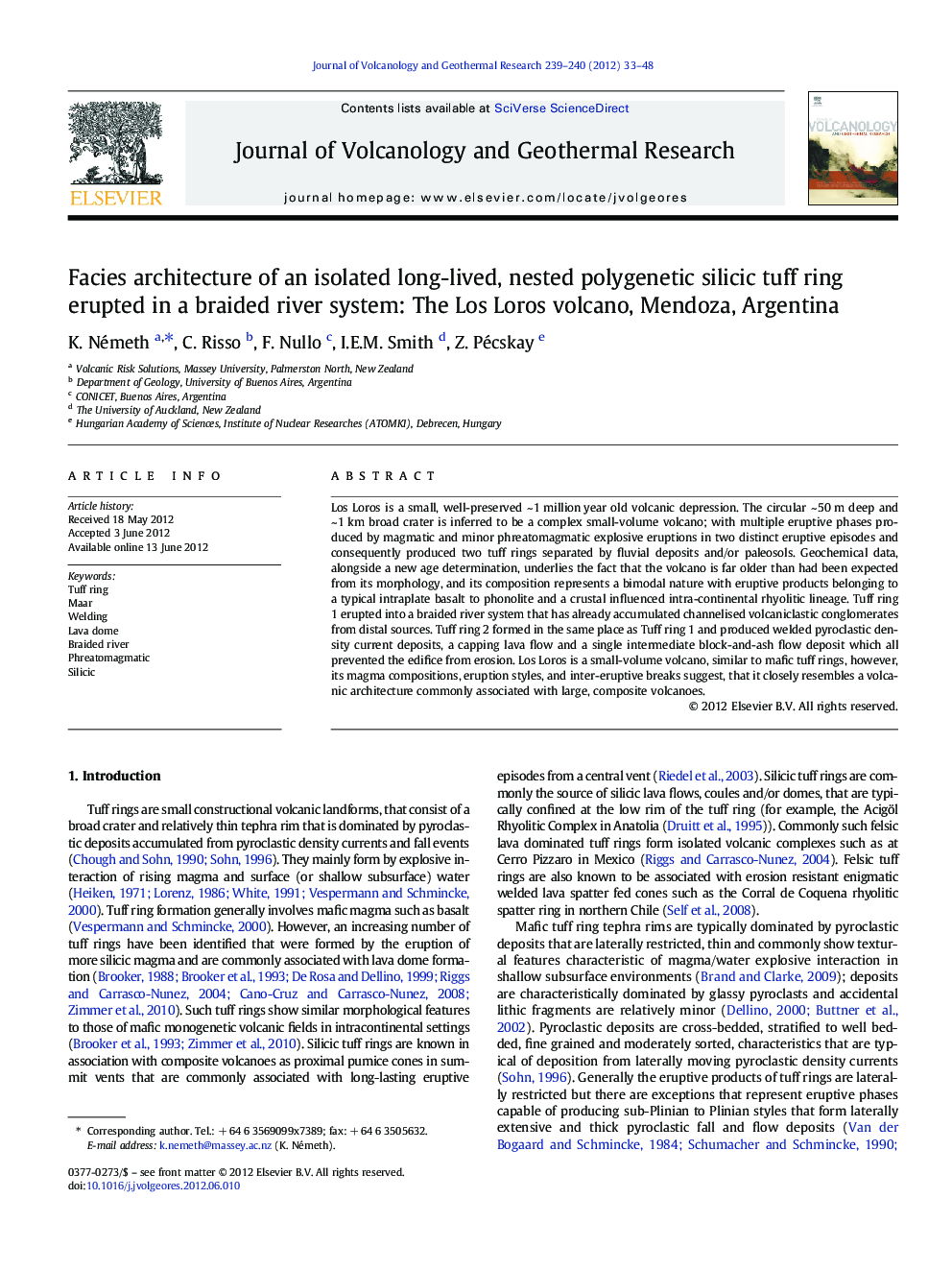| کد مقاله | کد نشریه | سال انتشار | مقاله انگلیسی | نسخه تمام متن |
|---|---|---|---|---|
| 4712621 | 1638377 | 2012 | 16 صفحه PDF | دانلود رایگان |

Los Loros is a small, well-preserved ~ 1 million year old volcanic depression. The circular ~ 50 m deep and ~ 1 km broad crater is inferred to be a complex small-volume volcano; with multiple eruptive phases produced by magmatic and minor phreatomagmatic explosive eruptions in two distinct eruptive episodes and consequently produced two tuff rings separated by fluvial deposits and/or paleosols. Geochemical data, alongside a new age determination, underlies the fact that the volcano is far older than had been expected from its morphology, and its composition represents a bimodal nature with eruptive products belonging to a typical intraplate basalt to phonolite and a crustal influenced intra-continental rhyolitic lineage. Tuff ring 1 erupted into a braided river system that has already accumulated channelised volcaniclastic conglomerates from distal sources. Tuff ring 2 formed in the same place as Tuff ring 1 and produced welded pyroclastic density current deposits, a capping lava flow and a single intermediate block-and-ash flow deposit which all prevented the edifice from erosion. Los Loros is a small-volume volcano, similar to mafic tuff rings, however, its magma compositions, eruption styles, and inter-eruptive breaks suggest, that it closely resembles a volcanic architecture commonly associated with large, composite volcanoes.
► Los Loros is a ~ 1 Ma old small volcano with a 1 km wide and 50 m deep crater.
► Multiple magmatic and minor phreatomagmatic explosive eruptive phases.
► Two distinct eruptive episodes in a braided river system.
► Diverse magma compositions, eruption styles and eruption breaks of a small volcano.
Journal: Journal of Volcanology and Geothermal Research - Volumes 239–240, 15 September 2012, Pages 33–48